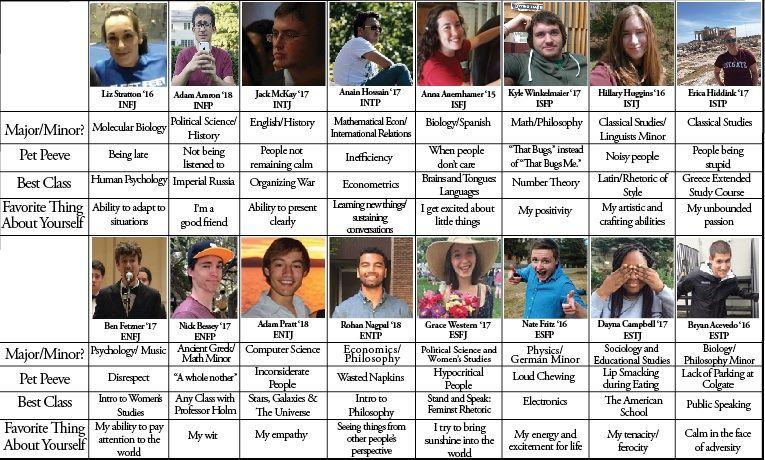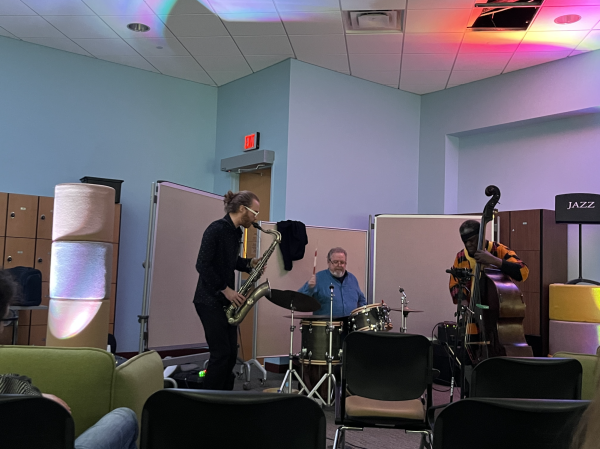Which Personality Type Are You?: Meet the 16 Types of People on Colgate’s Campus
Myers-Briggs is a system of personality typology based on the work of Carl Jung. It was created by Myers and Briggs, a mother and daughter team, after World War II. Myers and Briggs saw so much death and heartbreak during the war, and it motivated them to create a system that would help people to understand each other more and, hopefully, prevent tragedy from happening on such a massive scale ever again.
The Myers-Briggs Typology Index divides people into 16 personality types based on the results of four cognitive dichotomies. The letter pairings are:
Extroverted or Introverted (E or I)
Extroverted- you get energy being around others
Introverted- you get energy being alone
Intuition or Sensing (N or S)
Intuition- you gravitate towards ideas and you trust gut-feelings
Sensing- you trust what you can prove and what you can observe with your five senses
Feeling or Thinking (F or T)
Feeling- you are more likely to be tactful and make decisions with information from your heart
Thinking- you are more likely to be direct and make decisions with information from your head
Perceiving or Judging (P or J)
Perceiving- you are more casual and you make decisions when you need to
Judging- you are more organized and you are constantly taking in data and making decisions
Your MBTI (Myers-Briggs Type Idicator) results are far from being a comprehensive look, and it should go without saying that you are you, your heart and your soul, long before you are letters in a box. Also, no type is better than any other type (for example Ghandi and Hitler are frequently classified as the same type), and all 16 types contribute to a thriving society. Still, understanding the Myers-Briggs system can help us get one step closer to understand each other and ourselves, and can help us appreciate the unique skills and perspectives of the people around us.
While Colgate is our home, it is not a perfect place. As a student body we should be doing our part to better understand each other, along with taking steps to see our peers for the whole of their personhood, and not any simplistic definitions such as race, sexual preference or religious affiliation.
What follows is a small look into the world of 16 Colgate students, one belonging to each of the 16 Myers-Briggs personalities types. They provided their answers to a few simple questions:
-What is your major(s)/minor?
-What is your pet peeve?
-What was the best class you’ve taken as Colgate?
-What is your favorite thing about yourself?







